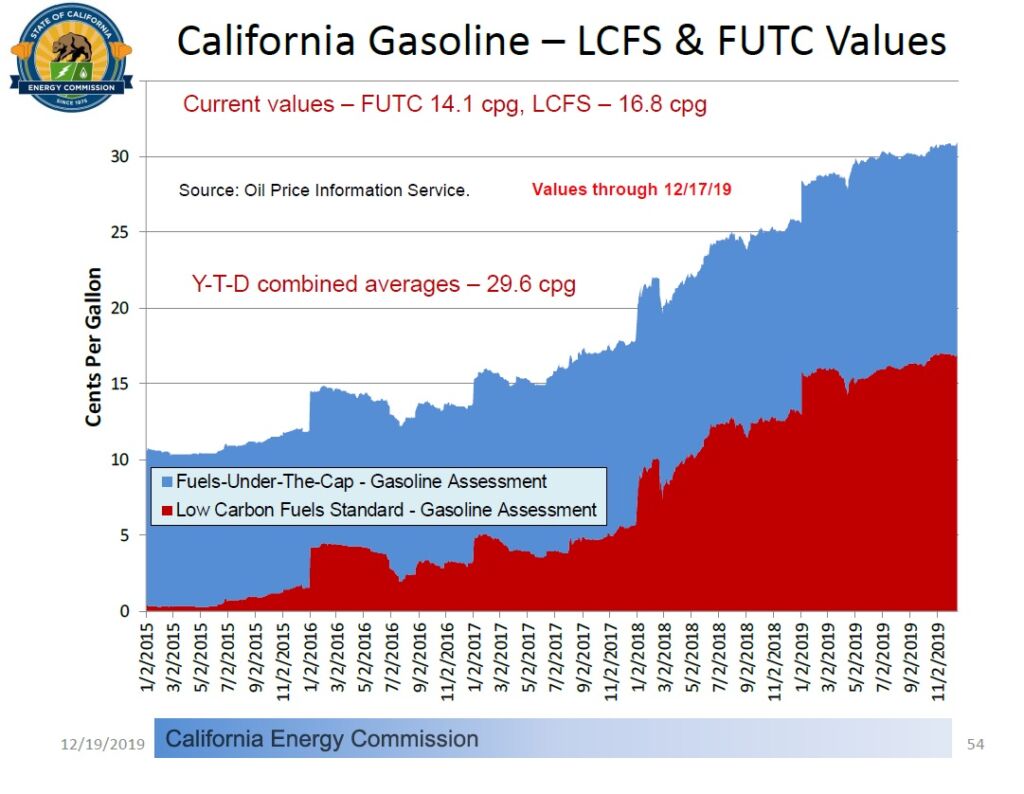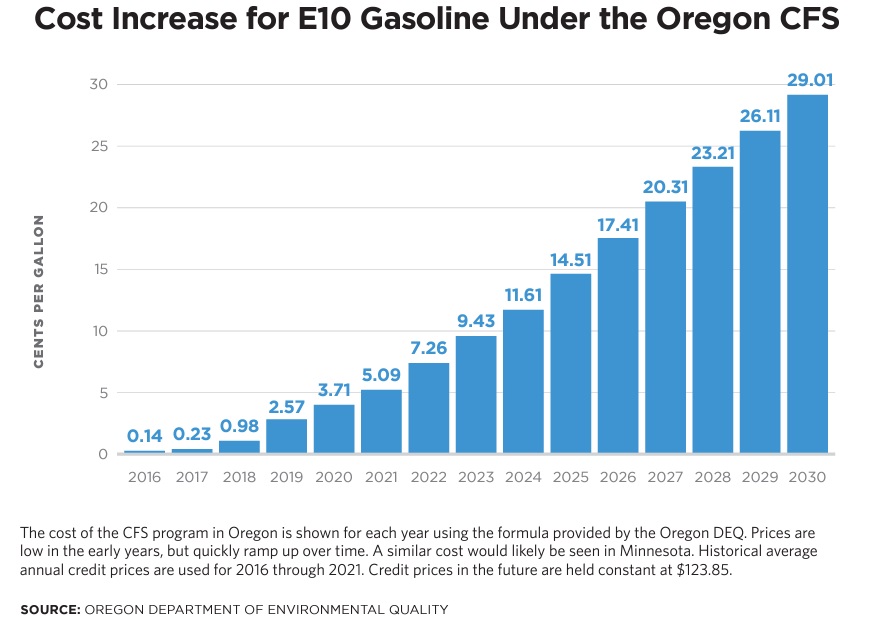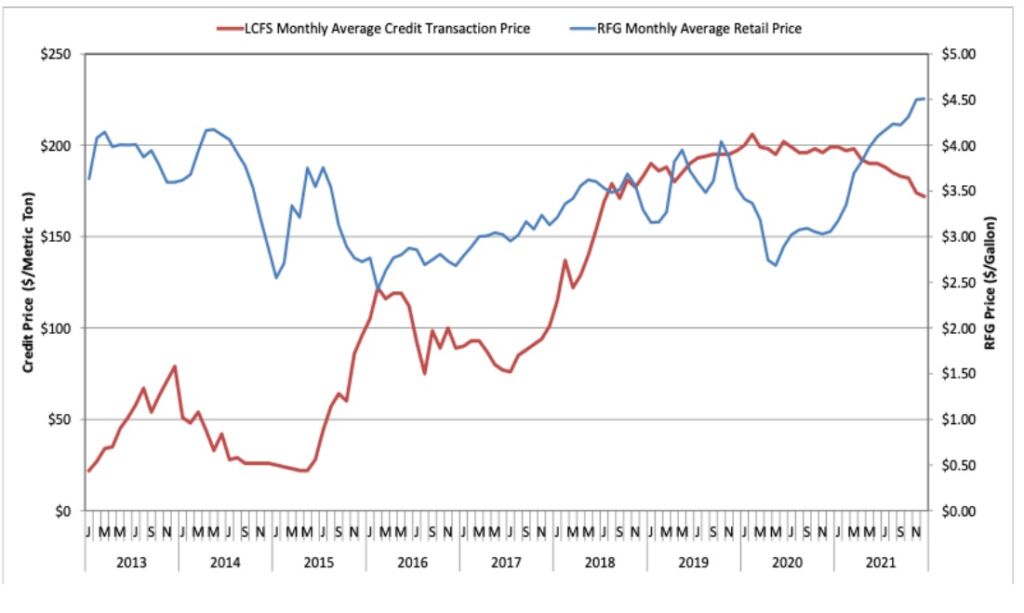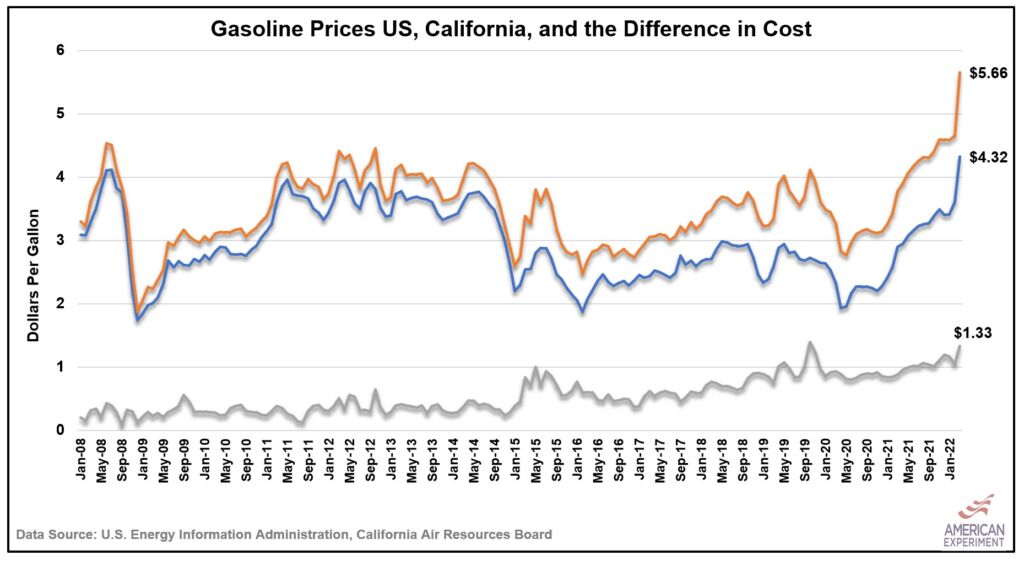Great Plains Institute makes deeply deceptive claims about California Fuel Standard
The Minnesota House of Representatives recently held a hearing on legislation that would bring an expensive California fuel standard (CFS) to Minnesota.
During the hearing, Brendan Jordan, Vice President for Transportation and Fuels at the Great Plains Institute (GPI), made deeply deceptive claims about the impact the CFS has had on gas prices in the Golden State.
It is vitally important for Minnesotans to understand why these claims are dishonest or deceptive because GPI is one of the leading proponents of the CFS in our state. The fact that GPI’s arguments are easily discredited shows how fundamentally flawed this policy is and why it should not be adopted.
Mr. Jordan stated:
“According to recent analysis from Bates White consulting, the Callifornia low carbon fuel standard had no impact whatsoever on retail fuel prices. In fact, retail fuel prices were “completely uncorrelated with California credit prices.”
You can watch his testimony by clicking the video below.
Mr. Jordan’s first claim that the CFS has had no impact whatsoever on retail fuel prices could not be further from the truth.
Even the California Energy Commission acknowledges that the regulations increased the price of gasoline by 16.8 cents per gallon at the end of 2019. Other analyses have found the cost of the fuel mandate increased to 22 cents per gallon as the regulations became more stringent.

Furthermore, the Oregon Department of Environmental Quality (ODEQ) has an entire webpage called the “Annual Cost of the Clean Fuels Program,” which is Oregon’s name for the regulations. It discusses how the program increases the retail price of fuel. Using the formula provided by the ODEQ, American Experiment calculated the future cost of gasoline in Oregon as the regulation gets more stringent every year.

In summary, there is no credible basis for claiming that the California fuel standard has not increased fuel prices at the pump.
For Mr. Jordan’s second point, he cited research from Bates White consulting that claims California gas prices are not correlated with the price of fuel standard credits. He provided this graph to the Committee, which shows gasoline prices in blue and fuel standard credit prices in red:

This comparison is an oversimplification designed to obscure the impact of the CFS on fuel prices.
A better way to look at the question of what effect the CFS is having on gas prices is to examine the difference in cost between California and the U.S. average over time. The graph below uses U.S. Energy Information Administration data and shows the difference in cost for gasoline increasing over time.

Just because the CFS is not the only factor affecting gas prices in California does not mean that it has no effect.
Based on the analysis from Stillwater Associates that found the CFS increased the price of gasoline by about 22 cents per gallon in 2020, we can reasonably conclude that the regulations were responsible for about 25 percent of the difference in cost between average California fuel prices in 2020 and the US average prices that year.
Minnesotans deserve a clear explanation of the costs and benefits of any public policy, especially one that will increase the price of gasoline and diesel fuel. Unfortunately, the Great Plains Institute did not have the integrity to shoot straight with Minnesotans.
You can read more about the impact of this regulation by clicking here.